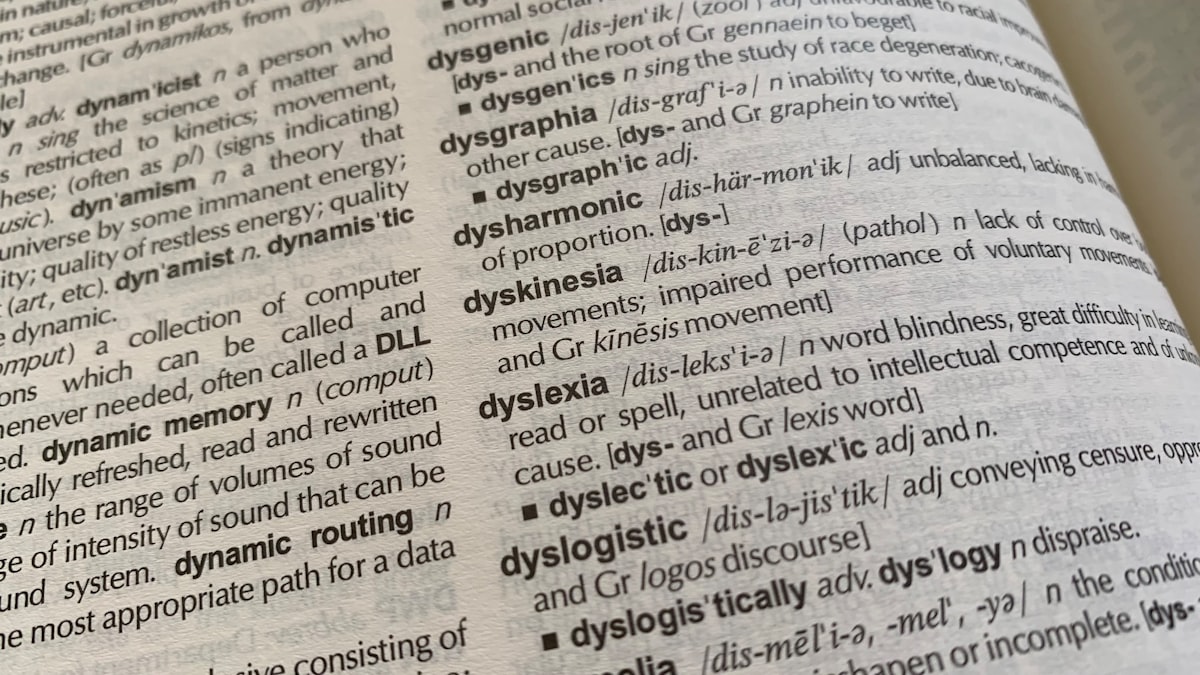Living with Dyslexia

Just about every day at work I have to dial a ridiculously long string of numbers in order to join a conference call. Just about every day on the internet I have to fill out those mind-bending CAPTCHA forms. For me, it takes intense concentration to complete those tasks. Maybe you can imagine what college Calculus was like for me. Maybe you can imagine what it was like to be called to the board to solve an equation in a middle school Algebra class. It wasn't until college that I was given an IQ test to determine what was wrong with me. The test came back definitive: I had dyslexia.
The National Institutes of Health define it this way:
ICD-10 R48.0 Developmental reading disorder (DRD), or dyslexia, occurs when there is a problem in areas of the brain that help interpret language. It is not caused by vision problems. The disorder is a specific information processing problem that does not interfere with one's ability to think or to understand complex ideas. Most people with DRD have normal intelligence, and many have above-average intelligence. DRD may appear in combination with developmental writing disorder and developmental arithmetic disorder. All of these involve using symbols to convey information. These conditions may appear alone or in any combination.
Some days are better than others. Stress makes it infinitely worse. Dyslexia is almost always linked to other neurological disorders. In my case, it's dysgraphia. Have you ever accidentally put a hot teapot in the refrigerator and the milk carton on the stove? Have you ever turned off the bathroom light when you really wanted to turn off the water faucet? I think this occasionally happens to everyone. This happens to me all the time. It's kinda funny but I'm constantly reminded that my brain does not work correctly. Research has produced very clear evidence of structural differences in the brains of children with reading difficulties.
Dyscalculia is another piece of the puzzle. This involves the processing of numbers specifically. Evidence exists that arithmetic (e.g. calculation and number fact memory) and mathematical (abstract reasoning with numbers) abilities can be dissociated. For example, I have arithmetic difficulties but seem to be gifted in abstract mathematical reasoning. Go figure. When I was in elementary school, school administrators wanted to give me medication for ADHD. Undiagnosed dyslexia can look a lot like ADHD to an outsider.
I wish I had been identified earlier in life but it's not clear that things would have been very different. There just aren't many tools to help. Thankfully, I grew up alongside the personal computer. Without computers, I would have been really lost. On a computer, my thoughts can go to the screen almost unconsciously through typing. Learning to type without looking at the keyboard took a long time but once I figured it out I was set free from pen and paper. Still, occasionally, I lose my orientation on the keyboard and my brain comes to a screeching halt. Looking at the keyboard is the problem.
It's really impossible to explain all of this unless you've been there. Luckily, there are now amazing tools like Siri on the iPhone. These tools will pave the way for more voice-enabled technologies and hopefully close the gap between those with and those without.




